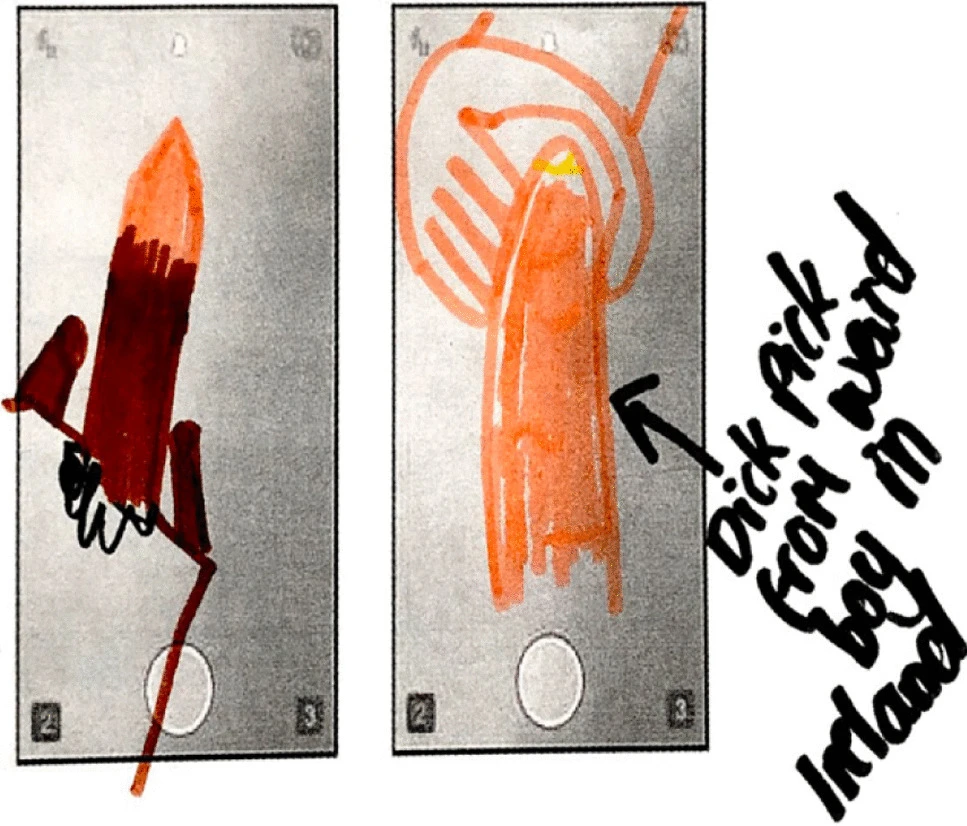How to Protect Your Child from Sextortion

Yesterday, the FBI released a statement warning about the dangers and rising rates of online extortion of children. This story has blown up all over the national news. While I am happy to see this issue get the attention it deserves, I feel as though the FBI is a little late in warning about sextortion.
This post contains affiliate links. The author or blog owner may earn a commission if you make a purchase using these links.
In 2016, I wrote the now outdated book, The New Age of Sex Education: How to talk to your teen about cybersex and pornography in the digital age. Children being sextorted was an issue then, though not as common as now.
How does this Happen?
Children (and adults for that matter) are online all the time.
This may be social media such as Instagram, Snapchat, or TikTok. They are posting content, talking to people, and generally doing what kids do. While these apps can be a great source of connection and information, there is always a dark side.
If someone’s account is not set to private, anyone can contact you. The individuals that are going to groom, manipulate or extort someone will follow, comment or direct message (DM).
The relationship grows. It often moves to a chat app like Kik and where the victim will send pictures of themselves. These can be anything from simply sexy to overtly sexual images or videos.
Not everyone who does this is looking to extort the child. Many individuals who are engaging in this behavior are sexually offending and with no financial motivation.

Do you believe your sexual behaviors are compulsive or harmful to you or others? Then you should take the CSBD-19 free, validated self-assessment tool.
The Demand
If the motivation of the individual is extortion, very quickly after receiving a video or image, there is an extortion demand. They ask for money; we often see the number $7500 being asked of our clients.
If the money is not paid, the threat is that the extorter will then post and share the sexual images to the child’s social media accounts, send to parents, family members, friends, etc.
We have had many adult clients who have had this happen and are so ashamed that they simply pay the money and hope it goes away.
If they do not pay the money, the threats can escalate and be very harassed.
Ultimately, sometimes the person’s images end up being posted.
When the victim of extortion is a minor, the shame and embarrassment often induce them to stay silent. Unlike adult victims who may have access to money, most minor victims do not which leaves them more vulnerable.
The mental health impacts of this victimization are very serious, and the FBI reported that many of the victims have turned to suicide.
Learn why it’s important for everyone, especially teens, to be able to control their online experiences. Dick Pic Culture: How do Teenage Girls Navigate it?

What can a parent do to prevent sextortion?
- The first thing to do is to talk to your child about the internet, privacy and who they are talking to online.
- Online communication are part of their cultural norm. We are not going to stop it, so children need to be informed about risk.
- Parents need to know what their children are doing online and on their phone.
- Know what apps they are using.
- Know whether they have social media accounts.
- Be aware of hidden social media accounts that kids often make and keep from their parents.
- Parents need to be open, non-shaming and available to talk about sex, sex education and sexuality with their children.
- Do not assume that they are too young to learn about digital sexuality.
- Do not assume that school will take care of this education.
- Many parents are uncomfortable talking about sex in general and even more so with their children. Get educated, acknowledge that the talks are awkward and have them with your children anyway. And have them often. This creates an environment where your child will feel more comfortable coming to you if there is an issue.
If you or your child are the victim of this type of crime, please contact your local police department or the FBI.
If you are seeking counseling for issues related to this type of victimization, please contact our office at www.sexualaddictiontreatmentservices.com or 610-844-7180.

Do you feel your sexual behavior, or that of someone you love, is out of control? Then you should consult with a professional.

